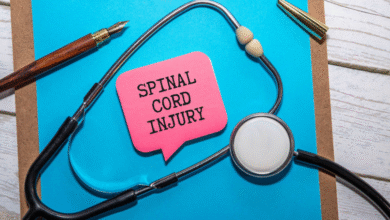Justice and Protection with a Domestic Violence Lawyer

Understanding the Role of a Domestic Violence Lawyer
Domestic violence lawyers are legal professionals who dedicate their careers to representing individuals who are victims of abuse within intimate or household relationships. Their role goes beyond simply appearing in court; they provide guidance, emotional support, and practical legal strategies to ensure their clients’ safety and justice. Victims of domestic violence often feel powerless or trapped in toxic environments, making the expertise of such lawyers not only helpful but often life-changing. By offering legal remedies such as restraining orders, protective orders, and advice on custody rights, these lawyers create a path for survivors to reclaim control over their lives.
In addition to representing victims, Queens domestic violence Lawyer may also handle cases where individuals are wrongfully accused of abuse. False allegations can arise during heated disputes, particularly in divorce or custody battles. In these situations, a domestic violence lawyer works to protect the rights of the accused, ensuring that justice is based on evidence and due process. Their balanced role highlights the importance of fairness in the legal system, ensuring both survivors and accused individuals receive appropriate representation.
Legal Strategies and Protective Measures
One of the most critical services provided by a domestic violence lawyer is guiding clients through the legal processes available to protect them. Protective orders, often referred to as restraining orders, are legal tools that limit an abuser’s contact with a victim. Lawyers help victims file for these orders, present compelling evidence in court, and ensure enforcement if the abuser violates them. Beyond immediate safety, these measures create a legal framework that deters further harassment or violence, giving survivors the confidence to rebuild their lives.
Domestic violence lawyers also assist in related legal matters such as divorce, child custody, and property division. These cases are often intertwined with abuse, as victims may fear for their children’s safety or worry about financial dependence on their abuser. A lawyer ensures that the victim’s rights are prioritized, advocating for fair custody arrangements and equitable distribution of assets. By addressing these interconnected issues, the lawyer provides comprehensive legal protection that extends beyond the violence itself.
Emotional Support and Advocacy
Beyond legal representation, domestic violence lawyers often act as advocates and support systems for their clients. Survivors of abuse frequently experience trauma, fear, and feelings of isolation, which can make the legal process overwhelming. Lawyers who specialize in this field are trained not only to understand the law but also to approach their clients with sensitivity and empathy. They build trust with victims, reassuring them that their voices matter and that they are not alone in their struggles.
In addition, domestic violence lawyers often collaborate with social workers, counselors, and advocacy organizations. These partnerships ensure that survivors have access to safe housing, mental health resources, and community support services. By connecting clients to these resources, lawyers provide a holistic approach to healing and justice. This advocacy role extends outside the courtroom, demonstrating that their commitment is not only to legal victories but also to the overall well-being of survivors.
Protecting the Rights of the Accused
While much focus is placed on supporting survivors, domestic violence lawyers also play a crucial role in defending individuals accused of abuse. Not all allegations are truthful, and false claims can devastate a person’s reputation, career, and family life. A skilled lawyer ensures that the accused has the opportunity to present their side of the story, challenging weak evidence or inconsistencies in testimony. This defense is vital for maintaining fairness within the justice system, ensuring that punishment is only given when the evidence supports it.
For those accused, domestic violence lawyers work tirelessly to protect their legal rights. They may negotiate plea deals, present character witnesses, or gather evidence that refutes the charges. In many cases, they also assist clients in accessing rehabilitation programs or counseling services, which can demonstrate to the court a willingness to change behavior if abuse did occur. Whether defending the innocent or supporting accountability, these lawyers are instrumental in ensuring that justice remains balanced.
The Lasting Impact of Domestic Violence Lawyers
Domestic violence lawyers play an essential role in shaping the lives of those involved in abuse cases. For victims, they provide hope, safety, and a structured legal pathway to a more secure future. By obtaining protective orders, advocating for custody rights, and addressing financial concerns, these lawyers empower survivors to break free from cycles of violence. Their work gives individuals the courage to start new lives, often changing generational patterns of abuse by protecting children from harmful environments.
For accused individuals, domestic violence lawyers safeguard the principle of fairness, ensuring that due process is respected. Their involvement helps prevent wrongful convictions and supports rehabilitation where necessary. This dual role highlights the importance of their profession in both protecting vulnerable individuals and maintaining justice within society. By combining legal expertise with compassion, domestic violence lawyers create lasting change, not just for their clients but for entire communities. Their dedication to justice, safety, and equality makes them indispensable allies in the fight against domestic violence.





